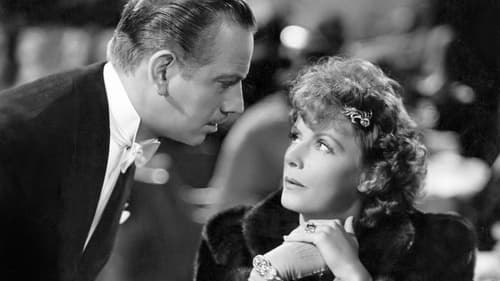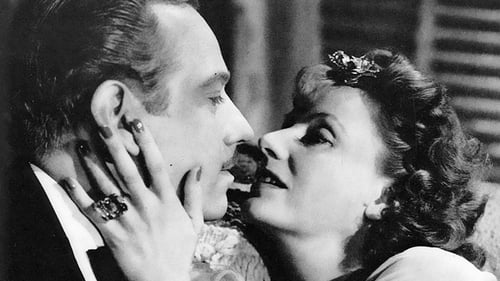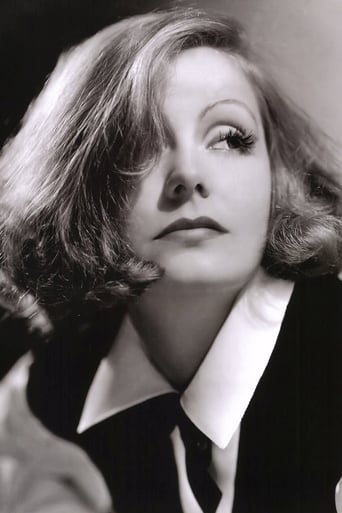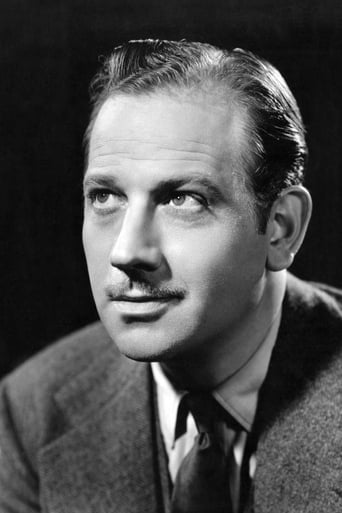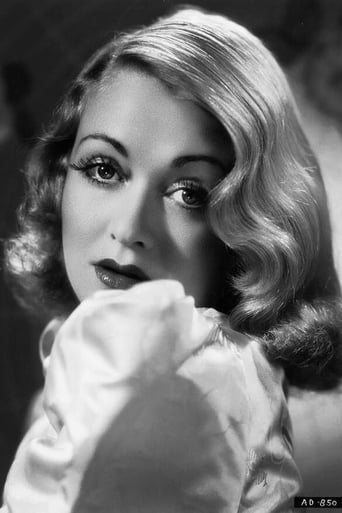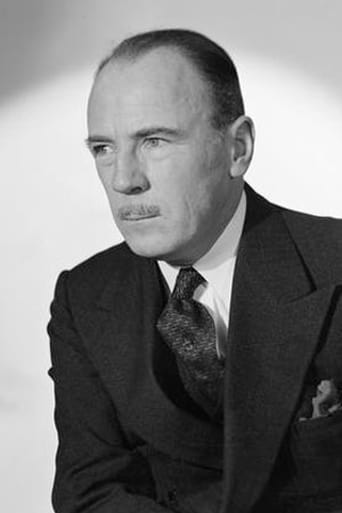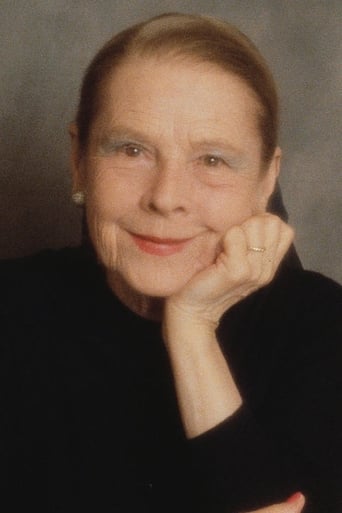Lovesusti
The Worst Film Ever
LouHomey
From my favorite movies..
Loui Blair
It's a feast for the eyes. But what really makes this dramedy work is the acting.
Fatma Suarez
The movie's neither hopeful in contrived ways, nor hopeless in different contrived ways. Somehow it manages to be wonderful
lugonian
TWO-FACED WOMAN (Metro-Goldwyn-Mayer, 1941), directed by George Cukor, stars Greta Garbo in her second American comedy that was to become her final motion picture screen appearance. Working opposite again with Melvyn Douglas, her co-star in the now classic comedy, NINOTCHKA (1939), TWO FACED WOMAN, by comparison, is often labeled a disappointment. Disappointment as it may be, it's still a watchable item due to it being the only opportunity to see the dramatic Garbo skiing, swimming, laughing, cigarette smoking, getting tipsy with champagne, and having the time of her life doing a Rumba type dance, "La Chica Chaca." Aside from her forties hairstyle, Garbo also wears an assembly of costumes designed by Adrian. What movie can there be Garbo playing one woman with two different personalities rather than two faces? That's TWO-FACED WOMAN.The plot opens at an Idaho Snow Lodge ("Ski your way to health') where Larry Blake (Melvyn Douglas), an overworked New York magazine publisher, who, at the advise of his doctor, comes for a rest. Almost immediately, he becomes attracted to Karin Borge (Greta Garbo), a ski instructress. Though she shows no interest in having Blake as her only pupil, his mishaps on both ski lift and mountain slopes are enough to have them married before the night is over. Their honeymoon is cut short with the arrival of Larry's executive partner, O.O. Miller (Roland Young), and his secretary, Ruth Ellis (Ruth Gordon), who come to take Larry back with them to New York the next morning to assist them with magazine matters. Because of this, an argument occurs, forcing Larry to leave without Karin, with intentions of returning to her once the assignment is completed. Though they continue to correspond by telegram, Larry's theatrical engagement with former flame and playwright, Griselda Vaughn (Constance Bennett) postpones his return for several more months. Through the arrangements with Miss Ellis, Karin secretly arrives in New York and surprise Larry. She's soon met with a surprise when finding Larry with Griselda at the 43rd Street Theater during rehearsals of her production, "Nostalgia in Chromium," to be more than just business partners. Attempting to flee the theater without being seen, she's then spotted by O.O.Miller but "introduced" to him by Miss Ellis as Mrs. Blake's twin sister, Kathryn. As the fictitious carefree twin sister, Karin assumes her masquerade by putting her husband to the test.Reportedly a modern reworking to an old silent comedy, HER SISTER FROM Paris (First National, 1925) starring Constance Talmadge and Ronald Colman, this latest edition proved nothing new to audiences of 1941, with the exception of Garbo assuming the sort of role expected by possibly Irene Dunne, Carole Lombard or Katharine Hepburn to enact. While this was intended to be a welcome change for Garbo fans, it proved otherwise. Interestingly, this premise of deceit had already been done earlier, to a better degree, under Preston Sturges' amiable direction of THE LADY EVE (Paramount, 1941) starring Barbara Stanwyck playing look-alike characters to confuse and win back the man she loves (Henry Fonda). With the exception of the ski sloping finale that mirrors that of Abbott and Costello's 1943 comedy, HIT THE ICE (Universal), and Constance Bennett's hilarious shrieking bits, TWO-FACED WOMAN offers little cleverness and witty one-liners that had THE LADY EVE work out so well. Having the serious-minded Karin marry a complete stranger hours after their initial meeting seems out of character for Garbo. Script revision depicting her and Larry as a divorced couple remarrying and giving their marriage another try might have been better suited. The Douglas character is more on a two-faced level here, showing great interest in his new bride one moment and growing tired of her the next. He's first romantic, then domineering and critical the next, the latter that doesn't go well with any independent woman. Miss Ellis sums it up well by saying, "They're in love!" Without these marital mishaps, there could never be any situations leading to Karin's fictional gold-digging, man-chasing twin sister to liven things up. Though portions of this comedy misses the mark, it does have Garbo leaving the motion picture screen not in traditional tears, but with good humorous fun. Also look for the young Robert Sterling in this production.Distributed to home video in the 1990s, TWO-FACED WOMAN often plays on Turner Classic Movies, home of the MGM film library, and those starring the legendary Greta Garbo. La Chica Chaca. (***)
edwagreen
Disappointing 1941 film with Greta Garbo and Melvyn Douglas in the leads. Constance Bennett is given little to do and the one surprise in the film is how rather pretty Ruth Gordon looked. This came a year after her memorable turn with Raymond Massey in "Abe Lincoln in Illinois."The story is rather routine here. In one swirl, editor Douglas marries ski instructor Garbo, but when Garbo comes to N.Y. to surprise him, she is not happy to see him around Constance Bennett. To top matters, his partner sees Garbo as she is fleeing before Douglas sees her. To the rescue comes Douglas's faithful secretary, Ruth Ellis, played with charm and wit by Ruth Gordon. She invents the story that he saw her twin. Soon aware of this facade, the rest of the film is devoted to Garbo and Douglas playing off on each other. The "twin" forces Garbo to be the woman she really isn't and this just goes on and on.
MartinHafer
This turned out to be Greta Garbo's last film, and in this light it could be said that her career did not end on a particularly good note. While this isn't a bad film, it's also pretty forgettable other than the fact that you get to see the Swedish vamp play a very unusual role where she smiles, does comedy and occasionally acts "kooky". I really don't think the movie's mediocrity is mostly the blame of Ms. Garbo, but the silliness and banality of the plot. In many ways the film seemed more like an episode of The Flintstones than a big budget film starring a Hollywood "heavyweight". If you don't believe me, just read a bit more about the plot: Workaholic Melvin Douglas is on vacation and meets ski instructor(!) Garbo. He is instantly smitten and very soon afterward they are married. However, instead of settling down to the simple life Douglas promised, he races back to the big city and his wild life--leaving Garbo behind--supposedly just for a week or so. The weeks become months and eventually Garbo heads to New York--only to find him paying way too much attention to another woman. So, given this situation, Garbo does what any normal woman would do--pretend to be her own twin sister who is wild and crazy and try to vamp Douglas herself! It is pretty funny watching all this (in particular, Garbo doing a crazy dance number when she gets drunk), but it's also pretty stupid and 100% ridiculous. For such a high-profile woman with a reputation for elegance, boy is this movie a HUGE departure--probably too much of a departure--that is why the public was less than impressed with this film.By the way, by the time this film was made, Garbo was getting pretty old to be playing such roles. In one scene in particular when she first arrived in New York, her hairstyle can only be described as horrid--looking almost like a hairstyle I'd expect to see on Una O'Conner in a Frankenstein movie. How the hairstylist chose THIS hideous and matronly style is beyond me.
krorie
The legends surrounding Geta Garbo were like so many deifications, partly true, partly fiction. When Garbo was good, she was very, very good, but when she was bad, she was only average. In "Two-Faced Woman," Garbo assays comedy one more time following her success in Ernst Lubitsch's classic farce, "Ninotchka." This time she nearly falls flat. Garbo's one redeeming feature in the film is the outlandish dance she performs midway through the show. It is indeed a marvel to behold and worth the price of admission.Almost all the other Thespians in "Two-Faced Woman" out shine the star, especially Constance Bennett, giving a wonderful personification of an acerbic bitch determined to keep her hooks in fresh meat. The gifted actor Melvyn Douglas shows his flare for comedy in a Cary Grant-type role, fun to watch in a slap-stick finale down a ski slope. The indomitable Ruth Gordon makes the most in a small role as Douglas' secretary. Bennett's former "Topper" colleague, Roland Young, is perfect as, again, a lecherous old man. Future TV "Topper" star Robert Sterling shows why he was chosen to portray George Kerby over a decade later.Another problem with "Two-Faced Woman" is the hackneyed story and script. Director George Cukor hoped to strike pay dirt a second time with a screwball comedy along the lines of his brilliant "The Philadelphia Story," utilizing a title similar to his recently successful "A Woman's Face." Unfortunately, he was let down by the writers, who gave him a theme already old hat. Bedroom farces involving mistaken identities, twins and lookalikes, etc., were passé by 1941. The popular Fred Astair, Ginger Rogers musicals of the 1930's employed such gimmicks in a fresh and original manner. The twins ploy of "Two-Faced Woman" just doesn't work.Karin Borg (Garbo), a ski instructor, meets and falls in love with Larry Blake (Douglas), a magazine writer. Following a whirlwind courtship that lasts only a few days, the two decide to tie the knot. Once married, however, their varied lifestyles clash. Larry spends most of his time in New York City away from Karin, who refuses to follow him, enjoying the life she already has. Distraught by visions of being two-timed and having her marriage canned, Karin heads for New York City, ending up incognito as her non-existing twin sister, Katherine. That Larry tends to be a philander becomes more evident as Karin sees her husband with other women, one in particular, Griselda Vaughn (Bennett). Katherine finds herself in the dubious position of competing not only against Griselda but against her own alter ego, Karin.Perhaps the shortcomings of "Two-Faced Woman" helped Garbo in deciding to retire from motion pictures. She never made another film. Though "Two-Faced Woman" is not a dud, it is below standards Garbo had set for herself.

